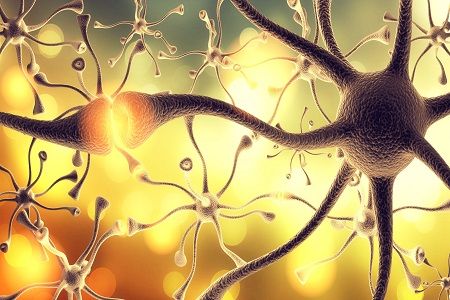Ingrezza Improves TD Symptoms In Year-long Extension
In 2 different dose groups, patients reported gradual decreases in AIMS scores over 42 weeks.

A recent extension study of valbenazine (Ingrezza) for patients with tardive dyskinesia (TD) showed long-term efficacy and improvement of symptoms over 42 weeks.
The results of the KINECT 3 phase 3 extension study of Ingrezza’s long-term safety and efficacy were published this week, showing the once-daily 80mg and 40mg doses of the selective vesicular monoamine transporter 2 (VMAT2) inhibitor maintains improvement and tolerability in TD patients.
The extension study — featuring 198 patients in a double-blind, 42-week period with scores returning towards baseline after a 4-week treatment washout — re-randomized previous placebo patients 1:1 to Ingrezza 40mg or 80mg. Other participants continued their previous KINECT 3 dose.
Researchers gauged efficacy by Abnormal Involuntary Movement Scale (AIMS) or Clinical Global Impression of Change-TD (CGI-TD), and safety via the treatment-emergent adverse events (TEAEs), scales for suicidal behavior, treatment-based akathisia, parkinsonism, and psychiatric symptoms.
Along with patients previously diagnosed with moderate-to-severe TD — as defined by an AIMS score — participating patients included those diagnosed with schizophrenia, schizoaffective disorder, or a mood disorder.
Results showed that Ingrezza has tolerability and continued efficacy through a year’s worth of treatment. From baseline to week 48, the 40mg group reported a mean AIMS score drop of 3.0 (23.7%). The 80mg group reported a mean 4.8-point drop (39.4%) in the same span. Following the washout phase, AIMS score had greatly increased in both groups, indicating a return to TD symptoms prior to Ingrezza therapy.
Ingrezza, the first US Food and Drug Administration (FDA) drug approved for TD, has had a growing portfolio in 2014. After being initially approved at 40mg dosage in April, it was again approved — for 80mg dosage — last month.
Now, the long-term extension study has backed its treatment for the antipsychotic medication-induced movement disorder.
"We are pleased with the long-term data, which demonstrate the ability of INGREZZA to effectively improve the symptoms of tardive dyskinesia with durable response," Christopher O'Brien, MD, Chief Medical Officer of Neurocrine Biosciences, said. "The data also showed that INGREZZA was generally well-tolerated and did not interfere with the effects of concomitant antipsychotic and antidepressant medications."
Since first being diagnosed about 40 years ago, health care expert have sporadically made advances in identifying and treating TD in psychiatric and gastroenterological patients, Hubert Fernandez, MD, a neurologist at the Cleveland Clinic, told MD Magazine.
During the second wave of marketed anti-psychotic medications in the 1990s and 2000s, the expansion of indications marked an expansion of TD diagnoses, Fernandez.
With VMAT-2 inhibitors like Ingrezza — and deutetrabenazine (AUSTEDO), approved for TD in August — clinicians found tolerable, efficacious use for a drug class previously disregarded in the US due to its cost and propensity of adverse effects.
Though it’s just currently a 2-drug market that only became occupied in 2017, Fernandez could not envision another TD therapy coming to the forefront until a third generation of antipsychotic medications were introduced.
Regardless, the branded therapies have proven to be significantly better tolerated than the first-generation tetrabenazine clinicians once prescribed patients with TD.
“Prior to these, the only thing we had was off-label use of tetrabenazine if it were affordable,” Fernandez said. “Now we actually have practical, more reasonable alternatives where we can keep the agents that cause TD in control, and use treatments to address the neurological side effects that the anti-psychotic medication has caused.”
A press release regarding the study was made available.
Related Coverage
Ingrezza Continues to Expand in TD Market
Long-term Ingrezza Found Safe for Tardive Dyskinesia
Study: Controlling TD in Mood Disorder Requires Long-Term Valbenazine Therapy